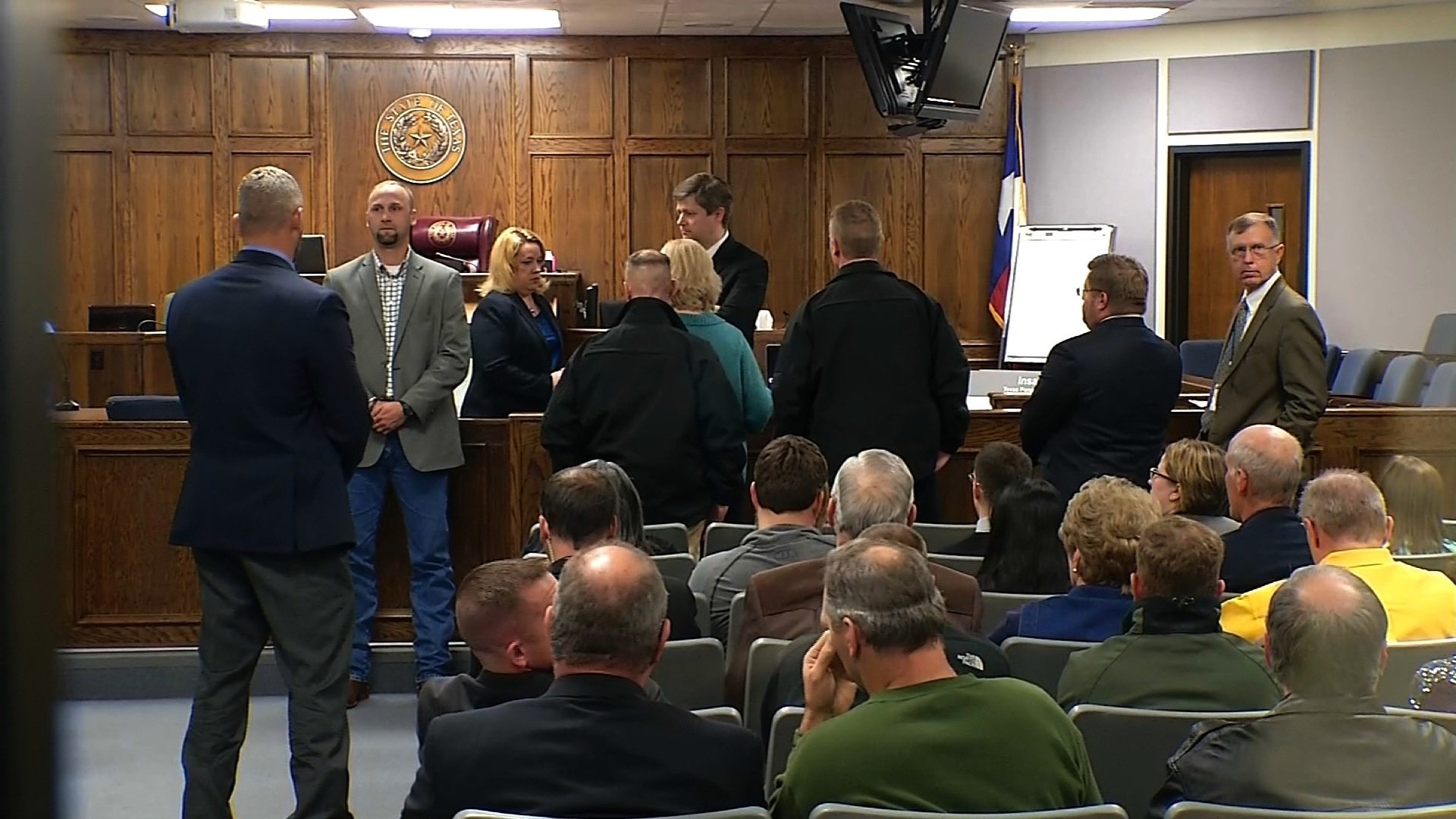No one disputes that Eddie Ray Routh shot and killed Chris Kyle and another man. But his attorneys wanted to convince a jury he wasn’t sane when he did so.
It took Texas jurors less than three hours to deliver their verdict: They weren’t buying it.
The jury found Routh guilty of capital murder in the deaths of Kyle, the author of the best-seller “American Sniper,” and Kyle’s friend Chad Littlefield.
Judge Jason Cashon immediately sentenced Routh to life in prison without the possibility of parole in the capital murder conviction.
“We’ve waited two years for God to get justice for us on behalf of our son and, as always, God has proved to be faithful,” said Judy Littlefield, the victim’s mother. “We’re so thrilled that we have the verdict that we have tonight.”
Three ways to decide
Jurors deliberating the case had three choices: guilty, not guilty or not guilty by reason of insanity.
No one disputed that Routh shot and killed the men. But defense attorneys said Routh was insane.
Prosecutors dismissed that assertion outright.
“Ladies and gentleman, that is not insanity. That is just cold, calculated capital murder. He is guilty of capital murder. He is not in any way insane,” said prosecutor Jane Starnes during closing arguments.
She said Routh knew the difference between right and wrong.
Starnes urged jurors to “follow the law,” allowing it to guide them “to the true and correct verdict.”
For its part, the defense pointed to Routh’s long history of mental illness.
“He killed those men because he had a delusion. He believed in his mind that they were going to kill him,” attorney J. Warren St. John said.
Popular movie, best-selling book
Routh’s trial comes in the wake of the release of the film about Kyle, a former Navy SEAL who claimed to be the deadliest sniper in U.S. history, with 160 confirmed kills in Iraq.
“American Sniper,” directed by Clint Eastwood and starring Bradley Cooper, is already the highest-grossing war movie.
Kyle’s autobiography by the same name spent weeks on best-seller lists. He had already risen to fame through his book when he died and had been involved in charitable work to help former troops suffering from post-traumatic stress disorder.
On February 2, 2013, Kyle and his friend, Littlefield, took Routh to a firing range as a kind of therapy.
The range is a small, remote part of the sprawling 11,000-acre Rough Creek Lodge, and the men were isolated.
A hunting guide found Kyle, 38, and Littlefield, 35, motionless and called 911. The men were dead when officers arrived.
What was the motive?
What’s never been clear is why Routh killed Kyle and Littlefield, but there have been a series of confusing and incoherent explanations for Routh’s motives.
Kyle apparently sensed tension as he and Littlefield drove the former U.S. Marine to the gun range.
Kyle secretly texted Littlefield, sitting next to him in a pickup, to say Routh was “straight-up nuts.”
Yet Routh has never revealed a clear reason in the fatal shootings. Kyle was shot four times in the back and once in the face. Littlefield was shot five times in the back.
Gene Cole worked as an officer in the Erath County Jail, where Routh has been held since his arrest in the killings. Cole testified he heard Routh talk about the shootings four months after they took place.
“I heard Mr. Routh say, ‘I shot them because they wouldn’t talk to me. I was just riding in the back seat of the truck and nobody would talk to me. They were just taking me to the range so I shot them. I feel bad about it, but they wouldn’t talk to me. I’m sure they’ve forgiven me,’ ” Cole said.
In May 2013, Routh provided another explanation in a phone interview he did from jail with New Yorker magazine writer Nicholas Schmidle. Portions of the recorded conversation were played for the jury.
Routh described being annoyed with Kyle and Littlefield as they made the 90-minute drive from his home to the countryside gun range.
Routh didn’t trust the Navy SEAL and his friend after their first meeting, he told Schmidle.
But his rationale was perplexing.
Routh complained about the smell of the air that day.
“It smelled like sh–,” Routh said. “It smelled like sweet cologne. I guess it was love and hate, you know. I was smelling love and hate. They were giving me some love and hate.”



